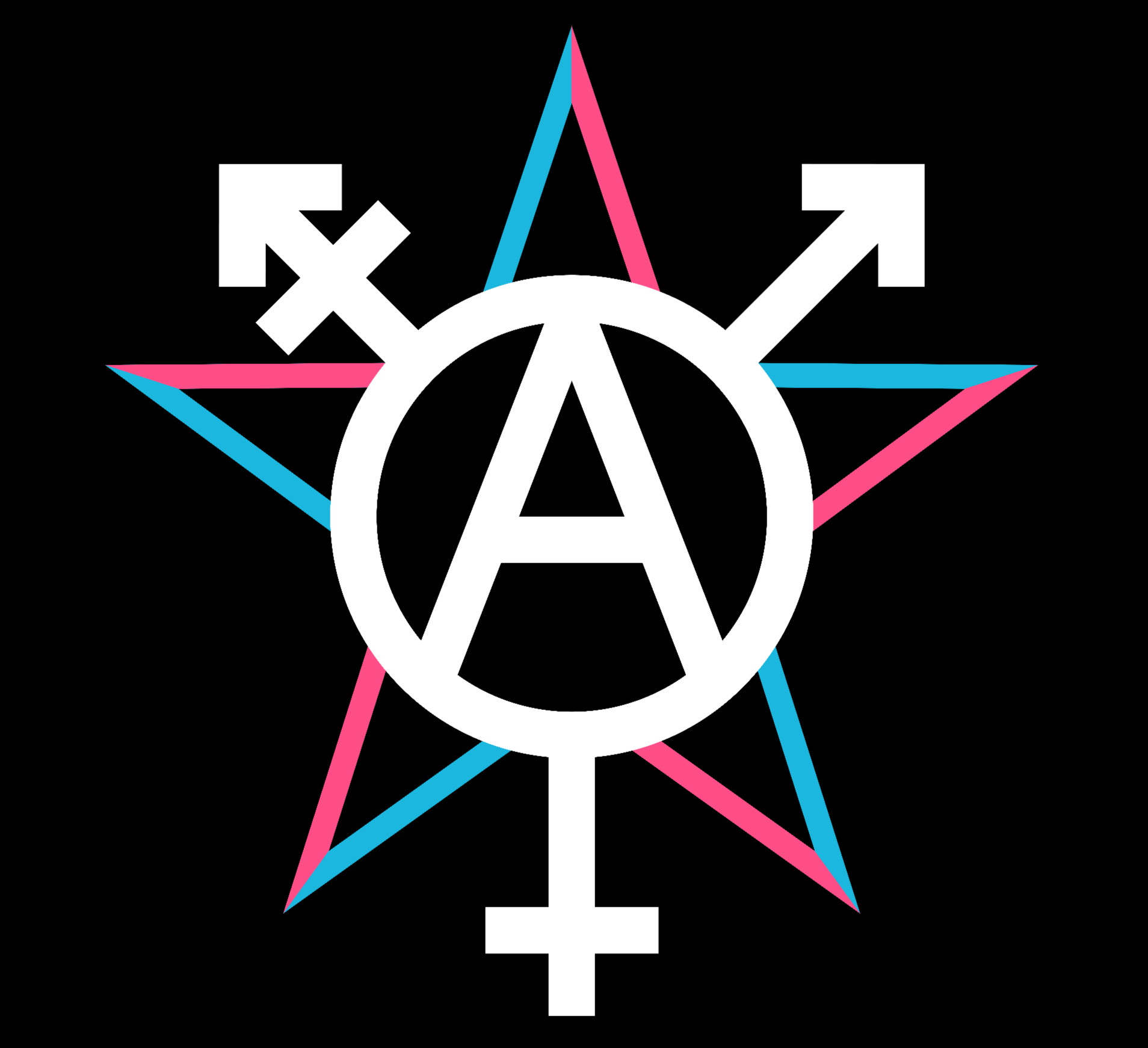Got called out once for pronouncing epitome as Epi-tome.
That one stung more than Camus as Cah-mus instead of Cah-moo. At least thats just the French fucking with us.
It can happen with common words too! Like I didn’t know I was pronouncing Thai food wrong till that John Oliver episode
How were you pronouncing it?
Thigh food
That’s adorable
Aw shucks
You never heard anyone say Thailand? Or you just never made the connection?
I think it’s the former, I also think I maybe imagined the “Th” when someone else said it. I also may have been surrounded by others who mispronounced both.
So in short I blame society /s
So in short I blame society /s
Ha! Typical millennial
Edit: since it’s not always clear on the internet, I too am being sarcastic.
( ͡° ͜ʖ ͡°)
That’s how I refer to… never mind
Uh, thanks for the heads up. I’ve been pronouncing epitome both correctly and incorrectly my entire adult life because for some reason I thought they were two different words.
If anyone’s wondering and since it’s not clarified here…
Epitome is pronounced like this: ||UK|US| |phonetic|/ɪˈpɪt.ə.mi/|/ɪˈpɪt̬.ə.mi/| |non-phonetic|epittomee|epiddomee|
I’ve been an avid reader since I was 6/7 and I hate reading dictionary listings with phonetic spellings as ironically they only make it harder for me to know how to pronounce a word. I’m also a native speaker.
Learning the IPA is quite good in that case
I can’t believe you don’t remember what an upside down e sounds like.
epiddomee
I know Americans pronounce Ts as Ds, but reading it explicitly written down is like being poked in the eye
Wait till you find out that they pronounce Ds as semi-trilled Rs!
I don’t know what that is but I’m intrigued and afraid!
They’re just like trilled Rs, but have only one trill, hence semi-trilled.
I’m trying this out with my own mouth and it’s weird
I’ll pronounce a T when you pronounce an R
That’s a new one, what’s wrong with Rs?
Most English people have a non-rhotic accent, meaning not pronouncing the r after vowels so words like “better” become “betta”.
This one seems like it’s very accent-dependent. A cockney geezer will definitely say “be’aah”, but a geordie would say "be’eh and someone from the west country would say “betterrrr”. I think the American pronunciation makes the R sound a lot longer (you can tell I don’t know all the property linguistics words!) so anything shorter probably sounds weird to you.
I’m sure it’s definitely regional, just like accents in the US. But generally in England at least it’s non-rhotic. I know Scotland is different, maybe Wales too
It took seeing videos of Elden Ring lore before it clicked with me that “cuckoo” is “coo-coo” and not “cuck-oh,” like, the chickens in Zelda.
It’s more like “cook-ooh”, the two syllables aren’t the same sound. It’s basically just the sound that actual cuckoos make.
Removed by mod
If it’s any consolation, I pronounced it the same way for years.
What the shit is a camus.
It’s like a hippopotamoo, but somewhat more existential and obsessed with arcana like boulders and mountains for exercise to discover happiness in life.
that’s the one ! 😁
Para-dig-em checking in. The bulb that lit up when I connected the sound with the word was pretty bright, but made me feel awfully dim. It changed my whole paradigm.
And they’re gonna fuck with you even further…
Albert Camus [alˈbɛːʁ kaˈmy]
Reading a new English word as a foreigner is super frustrating because you never know how to pronounce that.
Yes sure unanimous is not ‘un-animous’, it’s ‘you-nanimous’. Makes total sense.
Don’t even get me started on the dozen different ways to pronounce ‘ough’.English is tough, but it can be understood through thorough thought, though.
I’m learning Swedish slowly, and I was raised in the US south, so I am constantly corrected on pronunciation lol.
Have you learned the Swedish word “gift” yet?
Skank right? Or rather “skänk” with the sharp exhale emphasis on the sk- pronounced as wh- (similar to “who”). Hard to describe phonetically. But still lol.
My favorite is the Swedish word for fast or quick
Gift is poison, toxin or married
Skänk is a small table or with an a (skänka) it’s gifting
Edit: I just realized Skänk can be used as a verb in old fashioned speech, as in “skänk mig en gåva” which would translate to “gift me a gift”
Yep still learning. Constantly being humbled lol. I wish I could immerse myself completely in the language and culture to really hammer it in, for however long it takes.
Swedish can be rough, but immersion is the best teacher!
This might be too basic for you, but it’s based on learning the language as an older teen or adult.
https://urplay.se/program/199769-amira-ar-har-med-stodord-folj-doften
You might need a VPN, don’t know if UR (national educational radio) is available outside of sweden
With words starting with “un” you can figure out pronunciation by removing the “un” and see if the rest of the word is it’s own word which means the opposite. “animous” is not a word so you would use the long “u” sound in “unanimous”. Same for uniform or university. But not unironic or unintentional.
Through that logic I’d always figured unanimous stems from “without animosity” and the word animous just got lost to time, which would make un-animous the more sensible pronunciation. But it seems that while they do share a common etymology, it’s not “un” as in negation, but rather “un” from “unus” meaning one, with both sharing “animus” meaning mind.
I also found out that animous used to exist as a synonym for animus at one point.
The moral of the story; the only thing more ‘absurd’ (read: perfectly explainable, we’re just silly creatures) in linguistics than pronunciations…is etymology.
is its* own word
Foiled again by swipe typing
Yes that may be the reason why that difference exists.
The usefulness of that tip is limited when encountering new words for the first time though.
If I don’t know unanimous, chances are I don’t know if animous exists either.Edit: Also there is understand, which starts with un- although there is no ‘derstand’.
One could argue “understand” is more clearly two words stuck together than others mentioned.
Not that the two words combine meaningfully to create the new word!
Most radiology teachers want to be unionized.
Explanation: That’s both union-ized, for part of a union, or un-ionized, for not ionized
That said, that’s a really good way to describe the difference. If you’re a native speaker, you’ve got really good insight (your native language has a lot of blind spots, where you know what is right, but not why), and if you’re not, then your English is really good!
Thanks. I am a native English speaker. I just hate how inconsistent it is so I try to think up as many rules as I can to apply some kind of logic to it.
That’s very uncommon for native speakers, so good job! You’re probably a good person for language learners to be around :)
At least you can make an educated guess. I’m learning Chinese and if you don’t know a word there, you’re SOL. You can’t know what it means or even guess how to pronounce it.
Yeah fuck English. Can we all just use Esperanto instead. Like not even kidding, I love the idea of Esperanto since it avoids situations like the one you described.
Yeah, have you met French?
Mais oui.
Once you understand the rules, I find French pronunciation generally more reliable than English.The French heavily curate their language too, which probably contributes to it’s reliability and overall clarity. There are official words with official pronunciations, gendering, etc. No willy-nilly adding words from colloquialisms or slang like in English.
The problem of English is not so much colloquialisms or slang.
It’s a history of being conquered over and over and mixing the various languages together, throwing in a major vowel shift and then some scholars decided to further change the spelling of some words, just because.Let me just say, I’m not necessarily blaming anyone for the mess that is English.
I merely point out that there is often no clearly recognizable correlation between spelling and pronunciation, which can easily trip up non-native speakers (ant often natives too).
Like how the hell are you supposed to know how to pronounce “preface”. It’s obviously pre-face and it’s before everything else so the prefix pre makes so much sense. No one ever uses that word in spoken conversation either.
Except book editors I guess
Fucking English, dumb language held together by tape and desperation.
Most languages don’t need spelling lessons.
Some of them need extensive drawing lessons.
+15 social credit and 1 catwife
Just 1? :(
At least then you know how to draw!
Nah, more like has stupid rules because of loan words. Just English them or make up your own lmfao. It’s almost 7/8 of the reasons for anything that makes you go, why?
Nah, more like has stupid rules because of loan words.
All languages loan words. Many languages don’t have a problem mapping spelling to pronunciation.
Right? Fuck their original spelling. Just translate to your alphabet appropriately and fuck the rest.
Isn’t for example “read” an original word? It’s still messed up
Yeah, well how many of those language took us to the moon comrade?
A lot of them
German?
Which is basically one of the three dicks that got stuck in anglos to make english.
lol true
This must be Poe’s Law, right? You can’t be serious?
Nope. I thought I went way over the top but that joke but… not over the top enough apparently.
I can never get the hate about /s when you see sarcasm taken seriously SO often
You’d think the comrade would have given it away.
lol seriously
All it takes is for a couple of people to get it wrong and downvote. Once people see the -2, it’s game on and they will downvote you to oblivion. I downvoted you too! But then I rectified.
I know the feeling… I’ve been there
This site is the epi-tome of people thinking they’re smarter than everyone else, meaning they miss obvious jokes because they’d rather correct the person making the joke.
deleted by creator
I pronounced hyperbole as it is spelled “hyper bowl” for decades and nobody corrected me! It wasn’t until I finally saw someone say it in a TV show that I realized the error of my ways. Now I stumble over the word every time I try to say it because I have decades of habit to overcome. Sometimes when I think I might need to say it, I start mouthing it ahead of time so that I get it right on the first try. There are at least a dozen other words like this for me, and I’m sure dozens more that I’m not even aware of.
Edit: for those of you who have never heard it pronounced, hyperbole is pronounced “high-per-buh-lee”.
Same here. Hyper bowl. Until i heard it on TV.
I just want to suggest that your pronunciation at the end of your message is not quite right still.
Wouldn’t it be closer to say “hi-per-ber-lee”? Or am i still getting it wrong?
Someone else replied and gave a better phonetic spelling of it. I updated mine too. “Hy-per-buh-lee”.
What’s funny is the first time I heard it, I knew immediately what it was, but I wasn’t sure if that was the correct pronunciation, or if the speaker was being all high-born fancy-pants, so I had to ask my wife. English isn’t even her first language and she knows everything about it. She’s 10x better at speaking and writing English than I am. I do have other talents though! I think…
deleted by creator
Hy-per-buh-lee
Yours makes more phonetic sense! I will update mine.
This one is particularly annoying because of Hyperbolic, which is pronounced Hy-per-bol-ic. Which just makes Hy-per-bole seem more valid…
There are a lot of those prefixes that shift stress and/or pronunciation when going from nouns to adjectives or verbs, like supermarket vs superfluous. It’s just especially annoying when they use spelling uncommon to other English words, such as Quixote vs quixotic (the x is silent in the first and voiced in the 2nd).
Generally it kind of retains the features of the pronunciation of the language it was borrowed from. In this case Greek, which generally pronounces every vowel in a word. Similar to Aphrodite (which one would expect to be pronounced Afro-dight).
I know that doesn’t help much unless you have already built a guide in your head about how words of a certain language are pronounced and can guess what language that word originates from. You might need to consult a dictionary to find out what language it was borrowed from, at which point you’ll also see the pronunciation.
What does not exactly help in some people’s case, is that other Euro languages have adjusted Greek etc. words more to their own needs and actually do the “bowl” thing (even omit the e on the end, like in Dutch). I mean, I think that is what keeps me back.
wow! I made the same mistake till now! I just started speaking English again after a decade. all of my pronunciations are wacky 😁
I thought Harry Potter’s friend was pronounced her-mee-ohn for the first three books.
I’m the same vein, epitome.
I still pronounce that wrong in my head when I read it.
The Hyperb Owl, the less known relative of the Superb Owl.
I was 17 when my friend pointed out to me that epitome is pronounced epi-tome-ey
Rather than how I was saying it Epi-Tome.
Congrats, I was first corrected while meeting new people in college 😔
I even had it in a song I wrote and the whole thing was ruined because it didn’t rhyme anymore. Also it was ruined by my songwriting skills.
Same here, but I knew the correct pronunciation of the word when spoken, I just didn’t know they were the same damn word. When it finally clicked in my head, I about slapped myself.
Same here for “pique”.
I learned “piqued” when I was reading as a kid but I pronounced it “pee-khwhy”. So very wrong haha
…I don’t know how to pronounce that word either
Like peak . " My curiosity was piqued." In my example technically like peaked.
Dude, that’s how I was with dachshund. I heard it spoken and assumed it was spelled something like “doxen”, and then in my head I pronounced dachshund as “dash-hund”
TIL…
Gabriel Wyner talks about this phenomenon in the first chapter or two of Fluent Forever. Can’t remember what he called it but rest assured that you are not alone in experiencing this :)
I’m having an anaphylactic shock, give me the Epi-Tome™! 😄
Don’t mean to make fun of you, just thought of a coincidentally similar sounding word
I went to a restaurant called Penelope’s… I thought it was pene-lopes. 🤦
Ha, I remember reading Greek mythology when I was young and getting thrown off by Persephone. Seemed like it should rhyme with telephone…
That would be telephony, which I didn’t know was even a word until I was in my 30s.
Epitome was one of mine too. Also inventory, i thought emphasis was on the vent syllable not the in syllable
I used to do that, too. inVENTory
I know that, but I intentionally pronounce it epi-tome because it sounds better emphasized, it really bothers my mom
This unlocked the epitomous memory of me and my mom in the car and the radio show host trying to bust out his best vocab with epi-TOme. She bust out laughing. I feel like something similar is coming back 'round to me, just found out it’s epitomic. Not even sure how to pronounce
That one used to trip me up. It still “feels” wrong to me even today.
I’m almost 50 and recently learned I’ve been pronouncing two words wrong.
-
“Template” as ‘tem’ + ‘plate’ (like a dish) instead of ‘tem’ + ‘plet’ (like ‘let’)
-
“Opacity” saying the middle ‘a’ like ‘hay’ instead of like ‘math’.
That one I was SURE I was right when my wife told me, so I asked my Google home mini: “Hey Google, how do you pronounce the word ‘opacity’?” (Pronouncing it my way), and to prove that Google has a mean sense of humor, (and I swear this is true) responded with “Guacamole”. My wife has not let me live that down.
At least for template I think both pronunciations are correct. Or at least I feel like I hear temPLATE as often as I hear tempLET.
Template is sometimes pronounced template.
‘Tem’ + ‘plate’ is the British pronunciation.
Today I learned I’m British apparently.
It’s listed as the first pronunciation in Merriam Webster, which is an American dictionary
Holy opacimole!
Siri, set guacamole to 50%. Hmmm, that’s better. Now zoom in on that reflection. Enhance. Add some oignons. Theeeere we are. Our murderer, ladies and gentlemen
I’m not changing how I say either of those words.
Wait until you find out that primer, as in a small tutorial or short teaching material, is pronounced with a short i sound like is found in “fin,” “mix,” and “fringe.”
Primmer.
That one really boiled my noodle recently.
that’s an american thing, i don’t think it’s standard in UK english to pronounce “primer” as in an introductory text differently from “primer” as in a substance used to prime explosives or prime materials for painting
Same here in Canada, I’ve never heard “primmer” in my life, they are all pry-mer.
The fun one here on the Prairies is the name for the black and white sheepdog. Some say call-ie and some say coal-ie. I code switch them depending who I’m talking to, and though I grew up with call-ies I now live in a coal-ie area and that’s become my main pronunciation.
It applies to many similar words, however I will never strain my pasta with a coal-ander as that just sounds ridiculous to me.
in french we usually say “border” for collies. It’s possible because “border” doesn’t mean anything else
That’s okay. I know how to pronounce famine yet whenever i want to pronounce it it comes out as fa-Mayn. It really adds to my illusion of intelligence 🙄
-
I thought ‘segue’ was pronounced ‘seg’ and ‘Segway’ was ‘Segway’. I blame the mall cop transportation.
I’d blame the guy who thought pronouncing “vague” as /veɪɡ/ (or better who decided to write /veɪɡ/ as vague.).
we didn’t have the vegwayest idea how that would work out in the future
Vague is french, segue is italian, hence different pronunciation, the french equivalent would probably be suite.
It’s not pronounced in the same way as in french, why is it written the same way? I am not a native English speaker. Learning to speak English was so easy. Probably one of the easiest languages to learn. But the spelling is just the worst thing imaginable.
They literally took the worst parts of all languages for that. There is literally no consistency at all in English spelling. When you hear a word, you have no idea how to write it.
That’s because it pulls from french, Germanic, Celt, Roman, Norse, Indian and Hindu and many other languages depending on who conquered us or whom we conquered…
Hindi
Thank you
deleted by creator
Yeah that’s correct
English spelling isn’t very phonetic and generally prefers to keep historical spellings, a large portion of spellings are derived from variations of spellings used by Middle English writers hundreds of years ago. And Early Modern English & Middle English writers often times tended to use French-inspired spellings and etymological spellings (hence the spelling “island” from earlier English “iland” which was incorrectly thought to be related to Old French “isle”). English speakers also tend to change the spellings of loanwords very little when they borrow them, e.g. “naïve”/“naive” or “schadenfreude”. But in the case of some words, e.g. “schadenfreude”, the pronunciation isn’t borrowed very accurately.
This is opposed to writing systems like French and Polish writing, which have had multiple more recent spelling reforms (and semi-frequently have spelling reforms still) which keep the spellings more consistently matched with the spoken language. And, in general, loanwords’ spellings are adapted rather than preserved.
It’s pronounced pretty much the same in French, except with a soft ‘a’ and French uses a lot of silent letters, so that’s probably why.
/veɪɡ/
As somebody that doesn’t speak English natively… WTF?! I would never imagine this pronunciation. If you are going to corrupt the way it’s spoken, why not go and change the writing too?
The answer to that question involves talking about the French and what happened in 1066!
Tbf though, Webster tried simplifying some words for American English. He just didn’t manage to get them all.
I am just now learning from this comment that it is not pronounced seg and that what I thought were two different words (segue and segway) actually are not different words.
I feel lied to.
For years I thought segue was pronounced “seg-you”
TIFL
Segue - Seg? Segyoo? No, it’s Segway.
segooey
Unless they have a father with a PhD in English who acts like an English teacher with them their whole childhood.
I loved my dad, but boy did it suck when I showed him some piece of creative writing I wrote and he got out the red pen.
It is even more funny if the reading isn’t in your native language. I can write in English at a C1-C2 level but I am at the B level when speaking as I have no clue how to pronounce most of my regular vocabulary that I use when writing.
Same, and I thought I could improve by learning the phonetic association with groups of letters. English has 11000 different such associations…
They didn’t teach pronunciation when you learned to read English? That’s one of the very first parts of instruction when teaching it to native speakers. That’s also how instruction went when I learned Spanish. Granted, those are both Latin based languages, so I have no idea how it would work for something like Chinese to English.
We learned some general pronunciation rules but that was just for the vocabulary we had to learn for the lessons. The problem is that there are so many exceptions to the rules of pronunciation in English that you have to guess with like every third word if you didn’t hear it before somehow. I mean, look at this
There are quite a lot of exceptions. When I was learning Japanese I discovered that there are something like 2300 different English words that use irregular vowel sounds, and the number for Japanese words was something like 4. It has been 15 years, so I don’t remember the exact numbers, but it was crazy.
Yeah, English and rules. They don’t mix.
That’s because English isn’t a language. It’s three languages wearing a trenchcoat.
Probably depends on how much formal education you had and how much is from reading books and stuff on the Internet. The Problem with English pronunciation is, that it’s completely arbitrary, depending from which language the word is originally. I don’t know about Spanish but in French you can usually derive a words pronunciation from it’s spelling and vice versa.
but in French you can usually derive a words pronunciation from it’s spelling and vice versa.
I think same goes for every sane language
French is also a proscriptive language. There is a governing body that decides which words are “French” and how they should be pronounced.
English is a descriptive language. Words can be borrowed from other languages, and the only “rule” is common usage. If you speak and you are understood, then that’s all that matters. There is no authority or governing body, as much as dictionaries like Oxford, Merriam, and Webster try to pretend to be. That can cause word pronunciations to change over time. There’s actually an interesting phenomenon where English words will be “mis”-pronounced because people make up non-existent rules, and if enough people believe it, then the pronunciation becomes correct through popular usage.
Take the word “forte” meaning a personal strength or expertise. It is a word English borrowed from French, and many UK English speakers use the original French pronunciation, which sounds almost exactly like “fort.” American English speakers, seeing the word written and thinking it didn’t sound French enough, mispronounced the word as “FORtay” and this has become the accepted pronunciation in the USA. Further confusion stems from homonym used in music “forte” which is pronounced “forTEH” because it is the Italian word for “strong” meaning loud or forceful. Linguists sometimes also argue that the US pronunciation caught on because it clearly differentiated the word from the word “fort” meaning a military encampment.
The point is, English has no rules. To quote James D. Nicoll, “The problem with defending the purity of the English language is that English is about as pure as a cribhouse whore. We don’t just borrow words; on occasion, English has pursued other languages down alleyways to beat them unconscious and rifle their pockets for new vocabulary.”
Yeah, I realized after asking that it’s kind of a dumb question, considering I’m a native speaker and I was just writing about how I’ve mispronounced a bunch of words for most of my life that I’ve only ever read.
In Spanish, you can derive a word’s pronunciation from its spelling, but not the other way around, due to letters such as b, v, h, ll and y, some of which are interchangeable or mute.
They do teach pronunciation in ESL courses, but there is so much nuance to any language that I think most people need some degree of exposure to native speakers to be able to pick up on all of the subtlety that they have had the benefit of hearing from birth. I took years of Spanish myself but my verbal skills never developed nearly as far as my ability to read and write because I didn’t take the opportunity to put them into practice.
That makes sense. I can read Spanish pretty well, and I can understand Spanish when it is spoken by a non-native speaker, but when I hear native speakers it turns into a jumble of sounds I can’t make sense of. I also struggle with the different sentence structure, and the non English sounds, like the rolled R. Basically I can only speak and understand Spanglish and restaurant Spanish.
deleted by creator
French ppl be like “you’re saying the silent letters wrong”
English ppl be like “you’re saying the silent letters wrong”
Whores duvres?
Whores devours, baby.
I mean, some of them do
It’s horses overies, duh
Funny thing is, and someone French please correct me if I’m wrong, a French person learning that expression from a book would be able to just pronounce it correctly. The problem outlined by OP is mainly with the English language
I can confirm. But most of us are enable to pronounce correctly the many words that come from English like hamburger, youtube or even New York. Imo the problem is a fairly classic one of lacking the oral reference frame for other languages.
A lot of us were surprised
They actually use the transliteration of that in Japanese with a similar meaning, but as you might expect the French sounds change a lot when they end up in Japanese pronunciation. Imagine my surprise when I found out that oh-dohburu wasn’t actually a Japanese word originally.
To understand certain English words in katakana sometimes you just have to put yourself in the mindset of a racist 💀
Don’t think I ever heard a non-French person pronounce this even remotely close to the real thing, same goes for croissant.
Because croissant is an English word, a loan word yes, but still an English word. Are you going to say a Japanese person is wrong for pronouncing computer コンピューター?
Are culinary exports really “loan words”? Like the whole world calls a fajita a fajita (with various pronunciations), does that make it a loan word and part of the language or are we just using the original name for it? You see what I mean? I’m genuinely asking I have no idea.
I don’t know for computer in Japanese but in french it’s got it’s own word (ordinateur), a good example of this would be “weekend” which is integral part of french vocabulary, that I would call a loan word, not sure about the food stuff though.
Are culinary exports really “loan words”?
Why not?
does that make it a loan word and part of the language or are we just using the original name for it?
I mean, computer like I wrote, is just computer in Japanese. Similarly Tsunami and Honcho are japanese words, loan words, they still refer to their original meaning
While we are being pedantic, it’s «hors d’œuvres». But it’s ok, since most people wouldn’t even know where to begin to type such a character.
It also reminds me the many creative ways English speaking journalists have mangled the name of Denis Villeneuve.
My pet theory is that spoken English and written English are two different languages that kinda translate between them.
In spoken English, “I read books.” doesn’t have ambiguous tense.
You’re not exactly wrong. Spoken english was shaped by mostly the use of common people while writing was exclusively the domain of the clergy and nobility for a very long time.
Noah Webster didn’t go far enuf
Hyperbole
“Hyper-bole”
So I thought :(
Some of these words are just setting people up for failure!
deleted by creator
i still can’t pronounce thesaurus correctly

I think this is pretty useful in general: https://www.vocabulary.com/resources/ipa-pronunciation/
For thesaurus specifically https://www.merriam-webster.com/dictionary/thesaurus
But whatever pronounce how you like and just pretend to have an accent lol
Thu-sore-us is where i go there. The-soar-us also works pretty well.



























